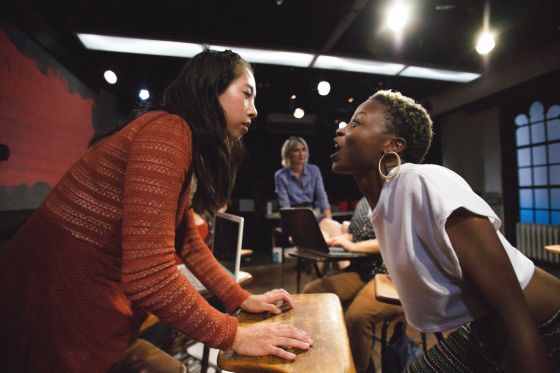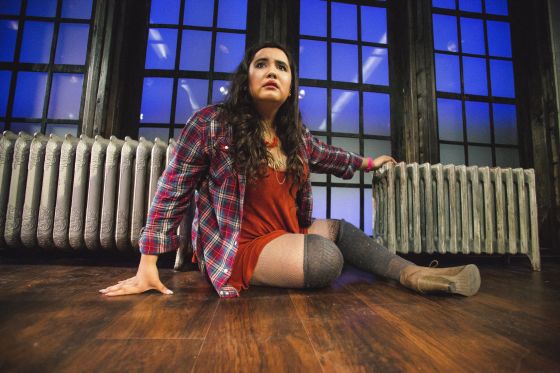

Our prologue in Good Friday presents us with a line-up of multiethnic young women dressed in underwear. After examining their bodies, they don street clothes and depart. We next see them in a classroom, ostensibly discussing Ibsen's A Doll's House but mostly engaging in the sort of pecking-order games employed by playwrights nowadays to assure us that smart, educated, third-wave feminist "scholaristas" can still behave like seventh-graders. Gunfire is heard outside. The women react by screaming, crying, praying, huddling on the floor and — in one case — considering how this incident will enhance her academic career. What the responses have in common is that everyone focuses solely on her own coping strategy. The only collective action initiated is to barricade the door with furniture, after which each group member once again withdraws into her private panic. So successfully do they frighten themselves and one another that by the time the shooter and her sidekick (yes, you heard that right) gain entry to the room, the incompetence of the would-be terrorists goes completely unnoticed. In a dramatic universe so saturated with estrogen that a church girl anticipating martyrdom finger-paints a cross on the wall in menstrual blood, are you surprised that the gunners are also female? Or that the crime precipitating the murder spree was the failure of authorities to address a gang-rape perpetrated by athletes on the school soccer team? Any suspense generated by hostage dynamics, however, quickly gives way to intra-gender issues parsed by playwright Kristiana Rae Colon at a velocity that leaves us reeling with vertigo. Granted, most plays of this genre feature captives swapping philosophy instead of plotting an escape, albeit at more varied pace than the uniform fever-pitch emotionality ordered up by director Tara Branham. The biggest obstacle to our comprehension of Colon's densely packed text, though, is the stripped-down decor and alley-staging mandated by Oracle's recent move to the industrial space formerly occupied by Signal Ensemble. Not only do these largely temporary factors make for acoustics forcing speeches that might have been written as internal monologues to be delivered simultaneously at full volume in cacophony exacerbated by the auditorium's aurally reflective surroundings and the shrillness of the speakers' voices, but the division of the physical space promotes obstructed sightlines and choreography offering the victims several easy-to-spot opportunities to disarm their assailants. Hey, why should that kind of teamwork be restricted—in fiction, anyway—to men?
